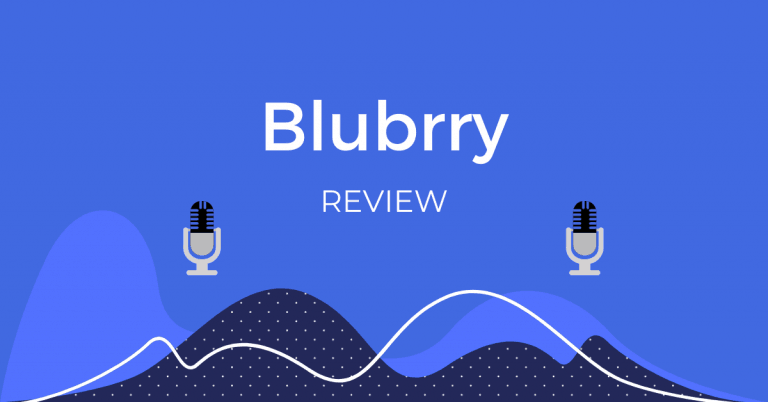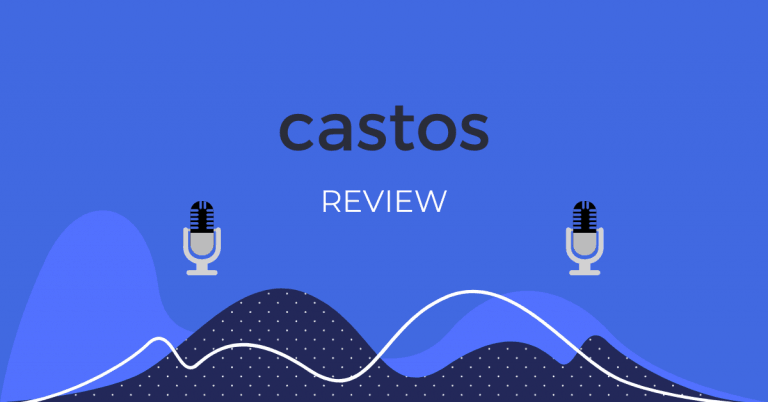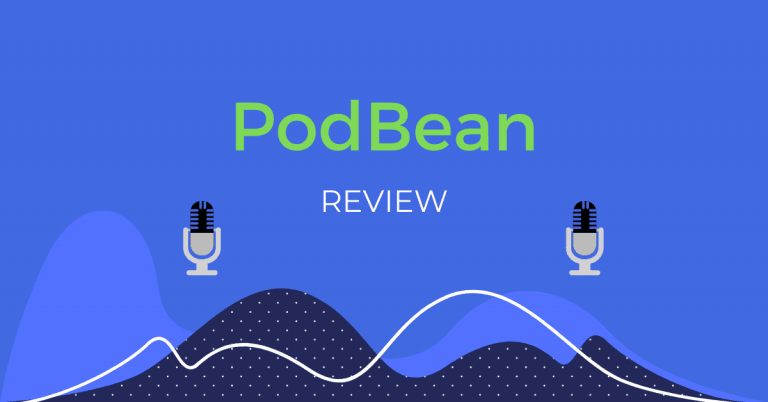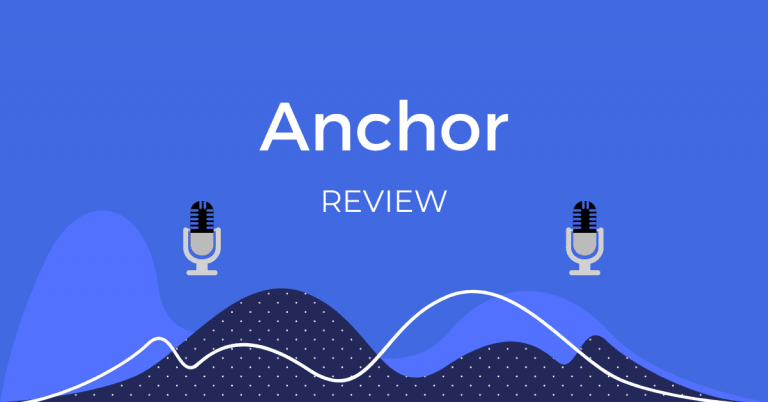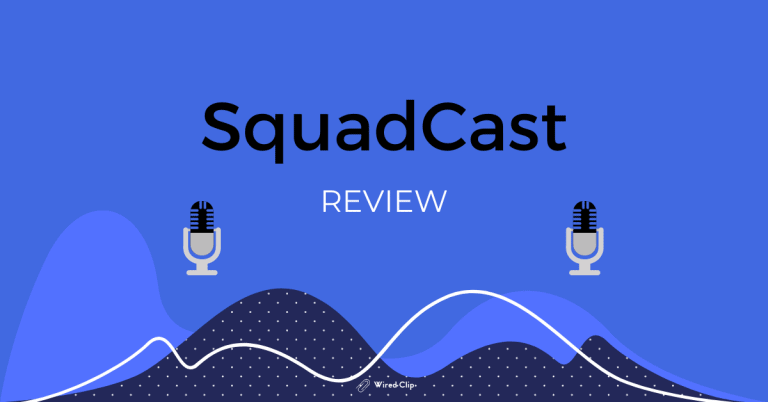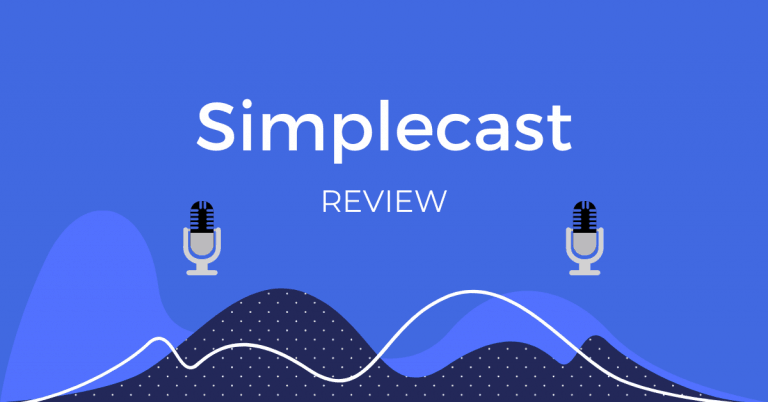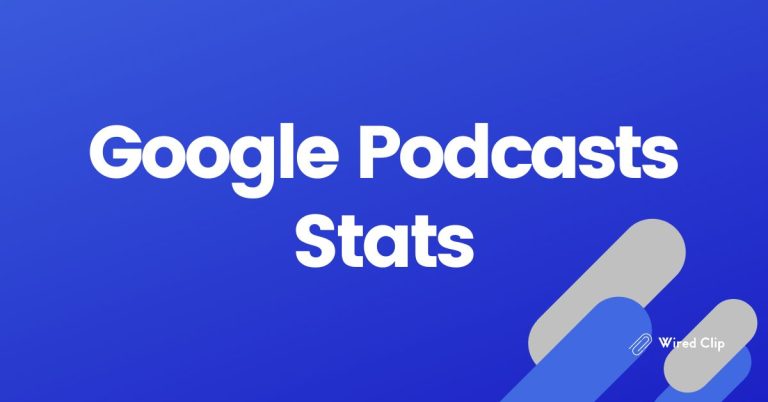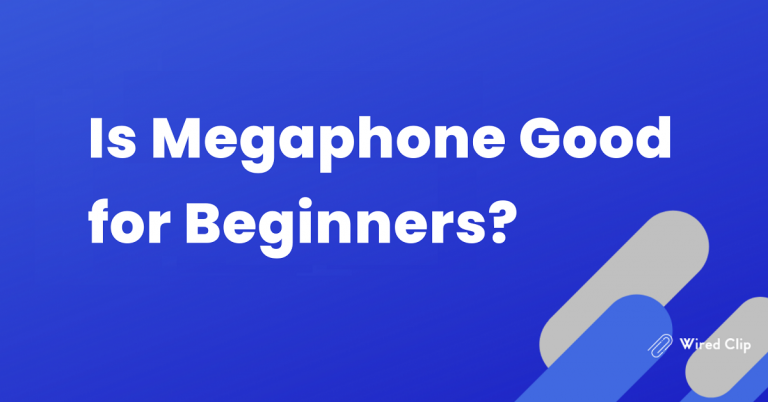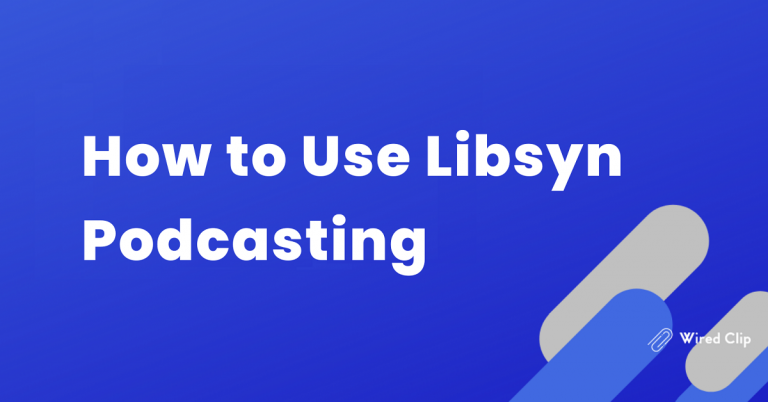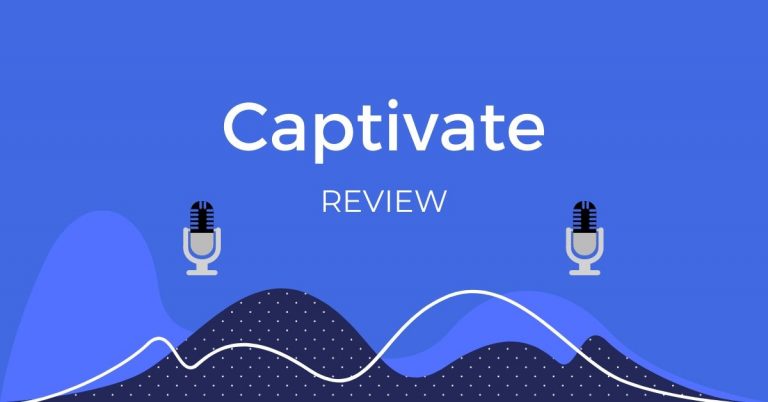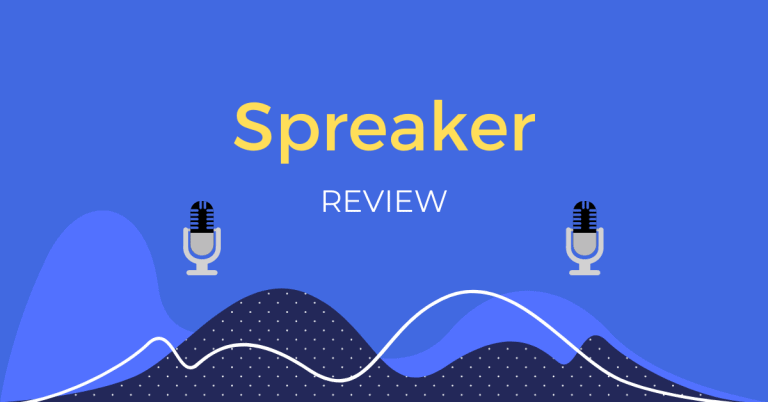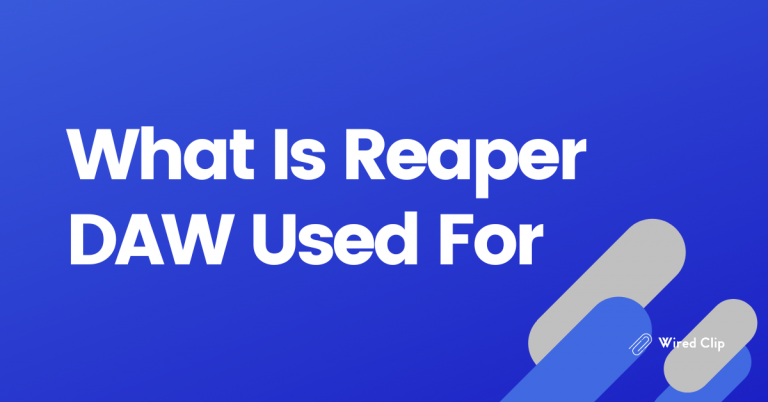With so many podcasts available for people to listen to, it can be difficult to make your podcast heard.
You may have the content and an interesting theme, but that doesn’t guarantee you listeners.
If you’ve been publishing podcast episodes for some time but haven’t seen the growth you wanted, you might be stumped as to why your podcast isn’t growing.
That’s where podcast analytics tools can help. This software can help you track and manage all your podcast data and stats, allowing you to see where your podcast can improve.
You can track important measures such as views and demographics and see the difference from episode to episode. This data can then be used to improve your podcast and increase your listeners.
This article will take a closer look at podcast analytics tools.
Key Takeaways
Introducing my top picks for podcast analytics tools, personally tested and approved by myself.
|
4.6
|
4.3
|
4.5
|
4.2
|
|
N/A
|
N/A
|
35% OFF
|
N/A
|
These tools have proven to be invaluable in tracking and measuring the performance of my podcast.
The Best Podcast Analytics Tools in 2024
Let’s begin by introducing some of the best software for podcast analytics.
1. Blubrry – Most Popular Podcast Analytics Tool
Blubrry is one of the most popular analytics tools out there. It offers several different services for podcasts and you can get basic statistics for free.
The more advanced analytics are only available with the Advanced Plan, which costs $20 per month ($17 when billed annually.) Blubrry will give you all of the stats you need, but it can be a little complicated for beginners.
Blubrry’s advanced plan enhances your analytics and offers a suite of podcast tools to improve podcast SEO and aid distribution across multiple platforms. This makes it an excellent choice for podcasters looking to increase their reach and visibility in a competitive market.
2. Castos
A podcast hosting platform that automates ever step in building a successful podcast.
14-Day Free Trial
Another one of the more popular analytics tools is Castos. This is a great tool for beginners as it is straightforward, and there is a wealth of easy-to-follow support to help you understand and get the most from the software.
Castos offers four membership options, ranging from $19 monthly to $499. Through its Seriously Simple Podcasting plugin, Castos offers analytics and seamless integration with WordPress, making it ideal for bloggers and content creators who wish to manage everything from one platform.
3. Podbean
- Easily start your own podcast today!
- There is a reason Podbean is used by 570,000+ Podcasters!
Podbean offers analytics and monetization options for your podcast. The Basic tier is free and gives you some analytics tools but these are, as the name suggests, pretty basic.
The other free tiers offer advanced stats and begin at $14 monthly ($9 when billed annually). With Podbean, you get unlimited storage space and can use the service over multiple podcasts.
Podbean’s analytics go beyond mere numbers, providing insights into listener trends and behavior patterns, which can help you tailor your content more effectively to meet audience preferences.
4. Transistor
Transistor is a podcast hosting platform that offers comprehensive analytics features. It provides offers advanced podcast analytics data on downloads, listener demographics, engagement metrics, sharing and referral information, and episode performance.
With integration options for Google Analytics, Transistor allows podcasters to track and measure their podcast’s performance, gain valuable insights, and make informed decisions to enhance their content and audience growth.
5. Anchor
Anchor is a podcast hosting platform owned by Spotify, and it offers basic analytics features. It provides information on episode plays, listener demographics, and performance metrics.
Find out who listens to your podcast on Spotify. This user-friendly option is great for beginners or those looking for simplicity.
Anchor simplifies podcast creation and distribution, allowing you to distribute your podcast to all major platforms with just a few clicks. Its analytics are particularly useful for understanding how your content performs within Spotify’s ecosystem.
6. Podtrac
Podtrac is a podcast measurement and advertising platform that provides detailed audience analytics.
It offers data on unique downloads, audience demographics, and listener engagement. It also provides industry benchmarks to compare your podcast’s performance.
Podtrac excels in offering comparative metrics, allowing you to benchmark your podcast’s performance against industry standards, which is invaluable for strategic planning and competitive analysis.
7. Squadcast
Squadcast excels in collaboration and recording quality, automatically saving audio and video files to both cloud and local storage.
Its high-quality video recording and separate tracks for each participant make it ideal for podcasts that involve multiple speakers or interviews, ensuring professional-grade production values.
8. Simplecast
Simplecast is a podcast hosting platform with robust analytics features. It provides data on downloads, listener demographics, and engagement metrics. It also offers real-time analytics, ad tracking, and sharing insights with team members.
Simplecast offers one of the most robust infrastructures for podcast analytics, featuring detailed episode performance breakdowns and audience insights, which are critical for monetization strategies.
9. Google Analytics – Google Podcasts
While Google Analytics is primarily designed for website analytics, It can also be used to track podcast performance if you have a dedicated website for your podcast.
You can measure user engagement, traffic sources, and conversions by embedding tracking codes and using custom URL parameters.
By utilizing Google Analytics with Google Podcasts, you can leverage extensive web analytics tools to understand your podcast traffic in conjunction with your overall digital presence, offering a holistic view of your audience’s online behavior.
10. Megaphone
Megaphone is a podcast hosting and monetization platform that includes analytics features. It offers data on downloads, listener demographics, and ad performance metrics.
It also provides podcast tools for dynamic ad insertion and audience segmentation. Megaphone is designed to optimize podcast monetization with tools that help maximize revenue through targeted ads and detailed listener data that can attract premium advertisers.
11. Libsyn
Libsyn is a podcast hosting platform that provides detailed analytics on your podcast’s downloads, audience demographics, and user engagement. It offers insights on popular episodes, geographic distribution, and subscriber trends.
Libsyn provides one of the most detailed analytics dashboards available. Its features track listener engagement down to the minute, helping podcasters understand exactly what content keeps their audience tuned in.
12. Captivate
Captivate distinguishes itself by offering unlimited podcasts, uploads, and storage across all plans, focusing heavily on monetization options like listener tips and exclusive content.
Its integration capabilities with tools like Mailchimp and WordPress make it suitable for podcasters aiming to grow their audience and streamline their workflow.
13. Spreaker
Spreaker is a podcast hosting platform that provides analytics on your podcast’s performance. podcast analytics tool enables data on downloads, listener demographics, and geographic distribution.
It also includes features like live broadcasting, monetization options, and social sharing capabilities. Spreaker stands out with its live podcasting capabilities, providing real-time analytics that can give instant feedback on listener engagement during live broadcasts.
14. Reaper
Reaper offers a comprehensive set of audio and MIDI recording, editing, and processing tools, making it a powerful choice for podcasters who require detailed control over their audio production.
Its support for multiple plugins and flexible editing options allows for a high degree of customization, catering to both beginners and seasoned audio editors.
15. Podsights
Podsights is a powerful podcast analytics tool that focuses on advertising effectiveness and audience engagement metrics.
It provides detailed insights into ad performance, helping podcasters and advertisers understand which ads resonate with audiences and drive action.
Podsights tracks listener responses to ads, from initial impression to final conversion, making it an essential tool for optimizing marketing strategies in podcasting.
What Should I Look For In Podcast Analytics Tools?
Before you choose a podcast analytics tool for your podcast, consider a few things. These will help you choose the right tool.
Important Metrics and Analytics
As a podcaster, tracking and analyzing your podcast’s performance to improve your content and grow your audience is important. Here are some important metrics and analytics to keep an eye on:
- Downloads and Listens: Track the number of downloads and listens to gauge basic audience size.
- Subscriber Growth: Monitor new subscribers over time to assess audience expansion.
- Geographic Data: Analyze listener locations to tailor content to regional preferences.
- Listener Demographics: Understand listener age, gender, and other demographics to better target content.
- Episode Popularity: Identify the most popular episodes to focus on successful topics or formats.
- Listening Duration: Evaluate the average listening time to gauge content engagement.
- User Engagement: Monitor interactions such as comments and shares to measure audience involvement.
- Referral Sources: Track where listeners find your podcast to optimize marketing strategies.
- Conversion Tracking: Measure actions taken by listeners, like signing up for newsletters or making purchases.
Social Media Analytics: Analyze performance on social platforms to enhance social media strategies. - Ad Performance: Assess the effectiveness of advertisements in driving listener actions or brand awareness.
Integration and Compatibility
When it comes to podcast analytics tools, integration and compatibility are key factors to consider.
| Feature | Description |
|---|---|
| Podcast Hosting Platforms 🎙️ | Compatible with platforms like Buzzsprout, Libsyn, Podbean |
| Content Management Systems 🌐 | Works with CMS like WordPress or Squarespace for integrated management |
| Advertising Networks 📢 | Syncs with networks like Advertisecast or Midroll for effective ad placements |
| Marketing Tools 📊 | Integrates with tools like Google Analytics or Facebook Ads for comprehensive marketing analysis |
| CRM and Email Marketing 📧 | Connects with software like HubSpot or Mailchimp for targeted communication |
| Social Media Platforms 📱 | Coordinates with platforms like Facebook or Twitter for direct insights |
| Third-Party Analytics 🔍 | Compatibility with analytics platforms like Google Analytics for deeper insights |
Data Visualization and Reporting
As a podcaster, I understand the importance of analyzing data to improve my podcast’s performance. That’s why I always look for podcast analytics tools that offer powerful data visualization and reporting features.
Here are the key features of podcast analytics tools that make it easy to visualize and report on your podcast’s data.
- Dashboard Interface: Easy-to-navigate, customizable dashboard to monitor crucial metrics.
- Customizable Reports: Tailor reports to specific needs and schedule regular updates.
- Real-Time Analytics: Monitor immediate podcast performance for on-the-fly adjustments.
- Historical Data Analysis: Review long-term trends to strategize future content.
- Exporting and Sharing Options: Flexible data exporting and sharing for collaboration and analysis.
User Interface (UI) and Design
When it comes to podcast analytics tools, the user interface (UI) and design are crucial factors to consider.
A well-designed UI can help users navigate the tool, understand the data, and make informed decisions.
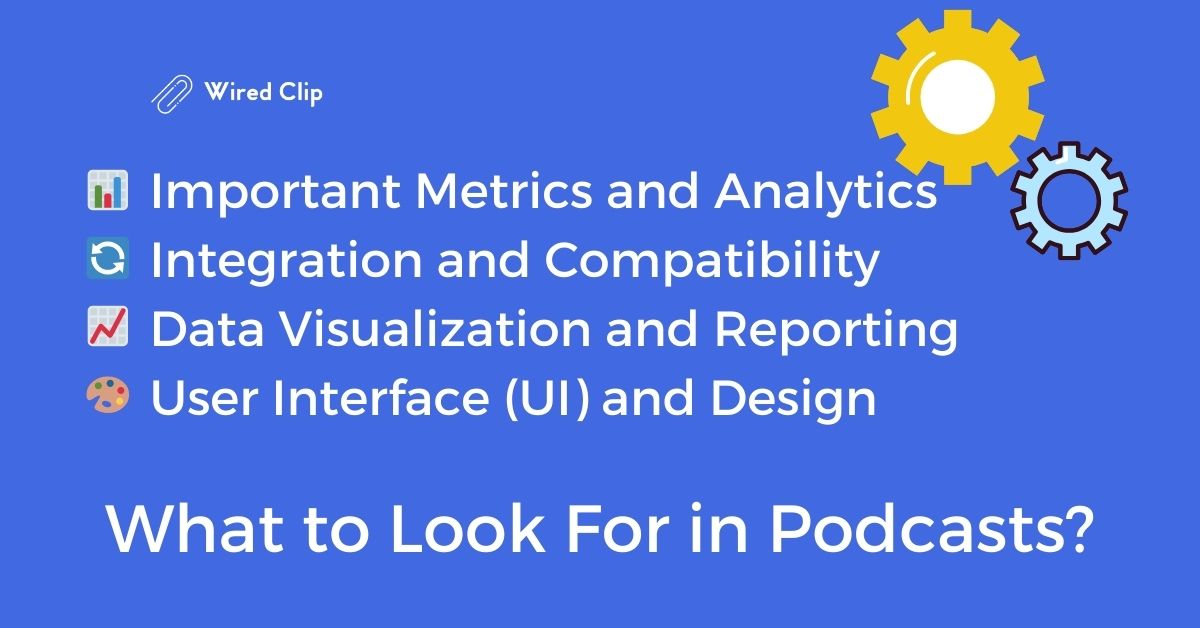
Here are some key aspects to consider when evaluating the UI and design of podcast analytics tools.
Usability and User Experience
Usability and user experience (UX) are critical components of any analytics tool. A good UI should be intuitive, easy to use, and provide a positive experience for users.
Look for analytics podcast tools that offer a clean, modern design with clear labeling and easy-to-understand data visualization. The tool should also be responsive and provide quick access to data and reports.
Ease of Navigation
The ease of navigation is another important factor to consider when evaluating podcast analytics tools.
The tool should be easy to navigate, with a clear hierarchy of information and easy access to key features.
Look for tools that offer a customizable dashboard, allowing you to organize data and reports in a way that makes sense to you.
Mobile Accessibility
With more people accessing podcasts on mobile devices, mobile accessibility should be considered when evaluating podcast analytics tools.
Look for tools that offer a mobile app or a responsive web design that adapts to different screen sizes.
The tool should be easy to use on a mobile device and provide access to all the same features as the desktop version.
Customization Options
Every podcast is unique, and the analytics tool you choose should be able to accommodate your specific needs.
Look for tools that offer customization options, allowing you to tailor the UI to your preferences and the needs of your podcast. This might include creating custom reports, setting up alerts, or integrating with other tools and platforms.
Integration with Podcast Workflow
Finally, consider how well the analytics tool integrates with your podcast workflow. The tool should be easy to use alongside your existing podcast hosting platform, editing software, and other tools.
Look for tools that offer integrations with popular podcast hosting platforms, such as Apple Podcasts, Spotify, and Google Podcasts, as well as editing software like Audacity or Adobe Audition.
Choosing a tool with a well-designed UI makes it easier to analyze your podcast data, make informed decisions, and grow your audience.
FAQs
How do podcast analytics tools handle listener privacy and data security?
Podcast analytics tools typically adhere to stringent data protection regulations such as GDPR and CCPA to ensure listener privacy. They anonymize listener data and provide podcasters with insights without compromising individual privacy.
Can podcast analytics tools help in improving podcast SEO?
Yes, some podcast analytics tools offer features that help improve podcast SEO. They provide data on keywords that draw listeners to your podcast and suggest trends that can inform your content creation, enhancing visibility in podcast directories and search engines.
What is the importance of real-time analytics in podcasting?
Real-time analytics are crucial for podcasters looking to engage their audience effectively. They provide immediate feedback on listener behavior during live broadcasts or shortly after episode release, allowing podcasters to adjust their content strategy promptly to maximize listener engagement.
Final Thoughts
In this article, we looked at podcast analytics tools. We considered what they are and what features to look out for.
We also listed some of the most popular analytics tools. We hope the information and advice in this article will help you choose the best podcast analytics tools.







